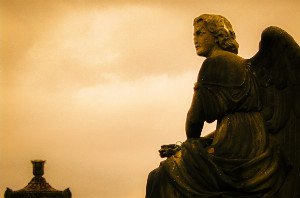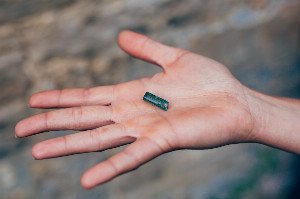Paweł Hamera
Wróżki i zacofanie irlandzkich chłopów w świetle wybranych dziewiętnastowiecznych dzienników z podróży
Introduction
Wróżki i zacofanie irlandzkich chłopów w świetle wybranych dziewiętnastowiecznych dzienników z podróży. Analiza roli wróżek w życiu irlandzkich chłopów XIX wieku, przedstawiona w dziennikach podróży. Jak podróżnicy utrwalali stereotypy o zacofaniu Irlandczyków.
Abstract
THE ROLE OF FAIRIES IN THE LIVES OF IRISH PEASANTS AND THEIR DEPICTION IN SELECTED NINETEENTH-CENTURY TRAVELOGUES Life in the nineteenth-century Irish countryside was not easy. Irish peasants lived in abject poverty and struggled to make ends meet. They consumed almost only potatoes and famines occurred regularly. Peasants often blamed their hardships on fairies, whose various races were supposed to inhabit Ireland. Tales about fairies were very popular among travelers who visited Ireland in the nineteenth century and subsequently published books about their travels there. They often highlighted the role of magic in daily activities of the Irish. The aim of this paper is to discuss the role of fairies in the lives of Irish peasants and argue that by underlining the attachment of the Irish to magical creatures, travelers underscored the backwardness of Irish peasants and propagated negative stereotypes about the inhabitants of the Emerald Isle.
Review
This paper, titled "Wróżki i zacofanie irlandzkich chłopów w świetle wybranych dziewiętnastowiecznych dzienników z podróży" (The Role of Fairies in the Lives of Irish Peasants and their Depiction in Selected Nineteenth-Century Travelogues), presents a compelling research agenda. The author proposes a critical examination of the role of fairy beliefs in the daily lives of 19th-century Irish peasants, situating these practices within the harsh realities of poverty and famine. Crucially, the paper intends to move beyond a mere description of folklore, arguing that the emphasis placed on these magical beliefs by contemporary travel writers served to propagate negative stereotypes and underscore the perceived 'backwardness' of the Irish populace. The proposed research promises a valuable contribution to several academic disciplines, including Irish studies, folklore, and the critical analysis of travel literature. Its strength lies in its explicit intention to dissect the mechanisms through which cultural observations can be co-opted to reinforce narratives of primitivism and otherness. By interrogating how external observers interpreted and presented Irish folk beliefs, the paper offers a nuanced understanding of stereotype formation and cultural essentialism during a period of significant social and political upheaval in Ireland. This critical lens applied to historical sources is particularly welcome and timely. To fully achieve its ambitious aims, the paper will benefit from a robust methodology in selecting and analyzing the chosen travelogues. Further discussion could explore the spectrum of traveler perspectives – were all uniformly dismissive, or did some attempt a more empathetic or contextualized understanding of these beliefs? Elucidating the specific nature of the "negative stereotypes" propagated and their long-term cultural and political impact would also deepen the analysis. Overall, this paper addresses a highly relevant and historically significant topic, offering a critical and insightful re-examination of how Irish culture was portrayed in 19th-century travel literature.
Full Text
You need to be logged in to view the full text and Download file of this article - Wróżki i zacofanie irlandzkich chłopów w świetle wybranych dziewiętnastowiecznych dzienników z podróży from Studia Historyczne .
Login to View Full Text And DownloadComments
You need to be logged in to post a comment.
Top Blogs by Rating
Goodbye Chargers: The Rise of...
By Sciaria
The Uncomfortable Truth: Why G...
By Sciaria
Life's Grand Algorithm: Is Bio...
By Sciaria
Favorite Blog
Are You Just a Colony? The Int...
By Sciaria
Beyond Repair Shops: Unlocking...
By Sciaria
The Immortal Jellyfish: Unlock...
By Sciaria
Related Research
Integrasi analisis kebutuhan dalam strategi pengembangan bahan ajar bahasa arab: studi pustaka
Analysis of the influence of work culture and work environment on employee turnover intention pt. abc president indonesia
The effectiveness of mechanisms and procedures for resolving customary land disputes by adat judges in tana toraja
Share
Notice Board
- TELL SULTANA-MALU ROșU: FIRST RESULTS AND INTERPRETATION ON SITE FORMATION, ABSOLUTE DATING, SUBSISTENCE ECONOMY AND MATERIAL CULTURE FROM THE EXCAVATION IN 2021
- EXPLORING THE QUALITY OF ECO-PRINTS FROM FLORAL WASTE ACROSS FABRIC VARIATIONS
- THE DESIRE TO BECOME A CHOSEN WOMAN IN SěRāT MěJANG DHATěNG GARWA R.P. 366.45





